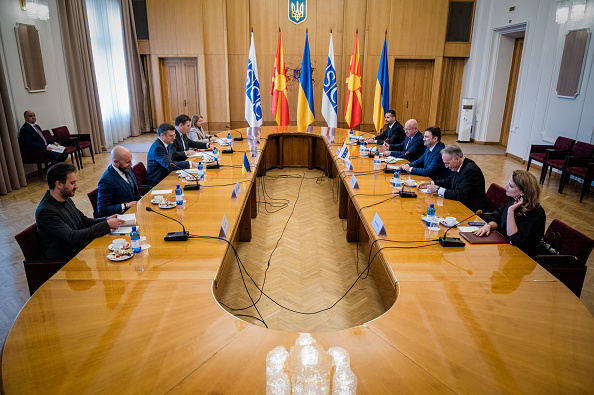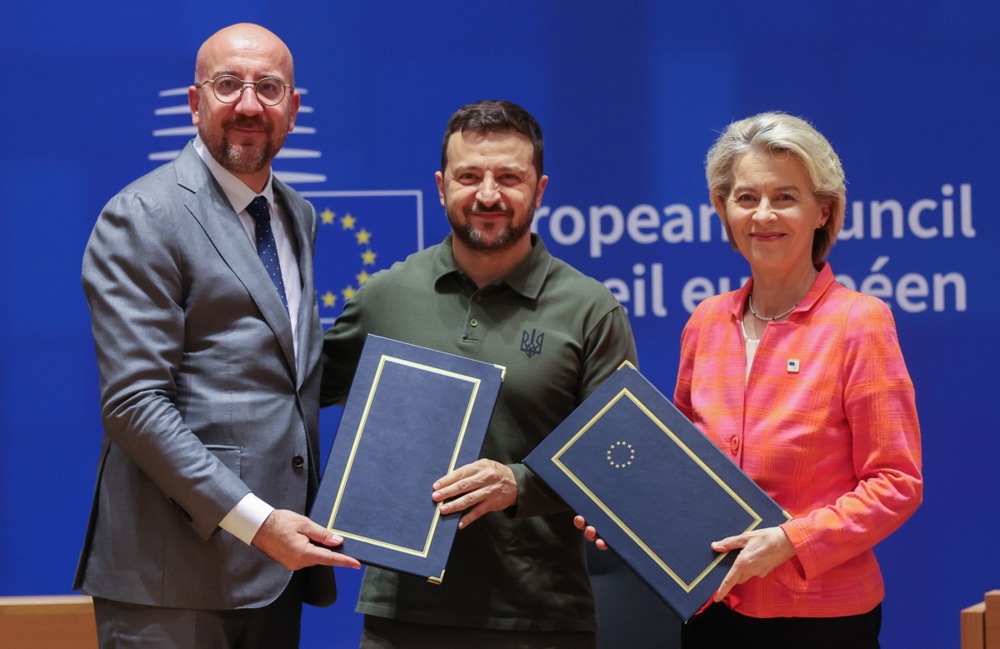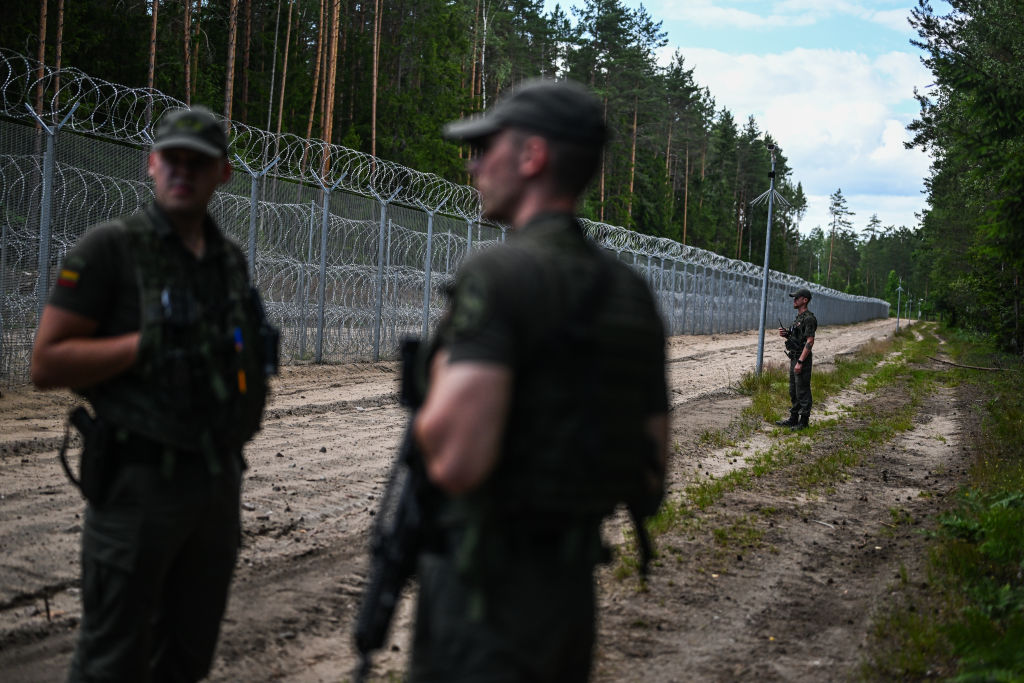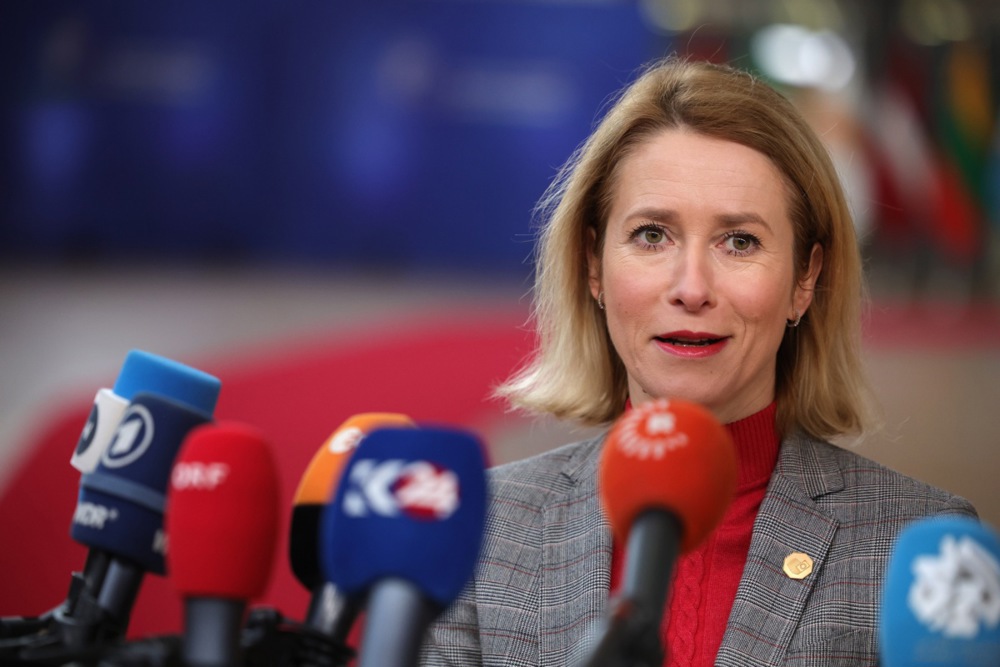Estonia’s newly elected government has strengthened the country’s border security amid hybrid warfare threats from Russia.
The Northern European country has identified what it said was a need for improved security in the Baltic region.
“Over the past years we have witnessed a changed security context on EU Eastern borders where, for example, illegal migration has been weaponised as a means of hybrid warfare,” Estonia interior minister Lauri Läänemets told Brussels Signal on July 30.
“The countries protecting EU Eastern borders need to be extra vigilant as illegal migration is weaponised by Russia and Belarus and we’ve seen it play out on the borders of Finland, Latvia, Lithuania and of course Poland,” he added.

The Estonian Police and Border Guard was dispatched on July 29 amid increasing attempts at illegal migration via Latvia’s border with Belarus.
Alongside the other Baltic countries and Poland, Estonia has been demanding a broader European Union security strategy to defend the bloc’s borders. They have called upon the EU to establish a “ground defence line” along its Eastern border with Russia and Belarus.
Poland and Baltic countries call for strengthened EU border with Russia. https://t.co/uYeciPUYt4
— Brussels Signal (@brusselssignal) June 27, 2024
To counter emerging threats, Estonia said it was enhancing its police and border guard capabilities. The strategy included preparing for scenarios such as paramilitary attacks.
The government said it would also implement new technologies. In addition to using more traditional surveillance systems, the Estonian Government was moving forward with a “drone-wall” concept for drone detection and defence, Läänemets said.
He added that the government’s effort to militarise its borders must be echoed across the EU.
“It is important to stress that Estonia is not only protecting its own border, but the Eastern border of the whole EU,” Läänemets told Brussels Signal.
The Baltic country recently updated its security strategy and commitment to border control and defence.
It released new governmental agreements that developed an action plan designed to boost the country’s security.
The political parties of the Estonian ruling coalition vowed to support Ukraine, closer co-operation with NATO, and to work more effectively with their neighbours.
“We will attach great importance to co-operation with the Nordic and Baltic countries and are looking for new opportunities for security-related co-operation,” they wrote on July 22.
“The accession of Finland and Sweden to NATO will enable security co-operation along the Baltic Sea to be taken to a new level.”
Estonia’s focus on security is driven by its shared border with Russia, which makes it a potential target amid the ongoing Ukraine conflict, especially given its firm stance on the war.
The country’s new Prime Minister Kirsten Michal said on July 23 after taking the oath of office that his country would back Ukraine “until victory”.
“We will support Ukraine until the victory of Ukraine in this war. We are in this for a long term, I hope our allies are too,” Michal told Reuters.
“The message to our enemies is that Estonia is well-defended, we will increase our [defence] expenditure,” he added.
Earlier this year, former Estonian prime minister Kaja Kallas indicated that her administration was looking at measures for deporting any permanent residents of Estonia who sought to attain Russian citizenship.
Estonian Prime Minister Kaja Kallas has indicated that her administration is looking at measures for deporting any permanent residents of Estonia who seek to accept Russian citizenship. https://t.co/e4KwiYEyQC
— Brussels Signal (@brusselssignal) January 9, 2024





